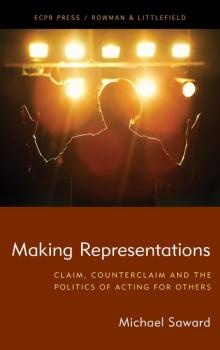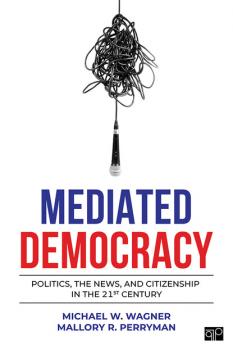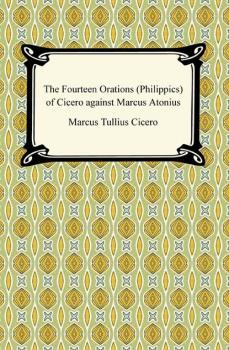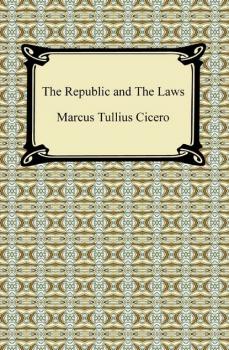Зарубежная публицистика
Различные книги в жанре Зарубежная публицистикаMaking Representations
In the past decade, the way we look at political representation has changed. A new wave of thinking shows how representation rises from claims to speak for others, and how the claims are performed and received. The claim-based approach introduces new characters to the drama of representation, such as non-elective, shape-shifting and transnational representatives. Written by an originator of this approach, Making Representations responds to critical questions about the practice and the legitimacy of representation in today’s politics. It also expands the scope of the representative claim approach by exploring innovative themes such as performances of representation, becoming representative, and how we can generate political insights by exploring artistic representation.
The Russians Are Coming, Again
Karl Marx famously wrote in The Eighteenth Brumaire of Louis Napoleon that history repeats itself, “first as tragedy, then as farce.” The Cold War waged between the United States and Soviet Union from 1945 until the latter's dissolution in 1991 was a great tragedy, resulting in millions of civilian deaths in proxy wars, and a destructive arms race that diverted money from social spending and nearly led to nuclear annihilation. The New Cold War between the United States and Russia is playing out as farce – a dangerous one at that. The Russians Are Coming, Again is a red flag to restore our historical consciousness about U.S.-Russian relations, and how denying this consciousness is leading to a repetition of past follies. Kuzmarov and Marciano's book is timely and trenchant. The authors argue that the Democrats’ strategy, backed by the corporate media, of demonizing Russia and Putin in order to challenge Trump is not only dangerous, but also, based on the evidence so far, unjustified, misguided, and a major distraction. Grounding their argument in all-but-forgotten U.S.-Russian history, such as the 1918-20 Allied invasion of Soviet Russia, the book delivers a panoramic narrative of the First Cold War, showing it as an all-too-avoidable catastrophe run by the imperatives of class rule and political witch-hunts. The distortion of public memory surrounding the First Cold War has set the groundwork for the New Cold War, which the book explains is a key feature, skewing the nation’s politics yet again. This is an important, necessary book, one that, by including accounts of the wisdom and courage of the First Cold War's victims and dissidents, will inspire a fresh generation of radicals in today's new, dangerously farcical times.Karl Marx famously wrote in The Eighteenth Brumaire of Louis Napoleon that history repeats itself, “first as tragedy, then as farce.” The Cold War waged between the United States and Soviet Union from 1945 until the latter's dissolution in 1991 was a great tragedy, resulting in millions of civilian deaths in proxy wars, and a destructive arms race that diverted money from social spending and nearly led to nuclear annihilation. The New Cold War between the United States and Russia is playing out as farce – a dangerous one at that. The Russians Are Coming, Again is a red flag to restore our historical consciousness about U.S.-Russian relations, and how denying this consciousness is leading to a repetition of past follies. Kuzmarov and Marciano's book is timely and trenchant. The authors argue that the Democrats’ strategy, backed by the corporate media, of demonizing Russia and Putin in order to challenge Trump is not only dangerous, but also, based on the evidence so far, unjustified, misguided, and a major distraction. Grounding their argument in all-but-forgotten U.S.-Russian history, such as the 1918-20 Allied invasion of Soviet Russia, the book delivers a panoramic narrative of the First Cold War, showing it as an all-too-avoidable catastrophe run by the imperatives of class rule and political witch-hunts. The distortion of public memory surrounding the First Cold War has set the groundwork for the New Cold War, which the book explains is a key feature, skewing the nation’s politics yet again. This is an important, necessary book, one that, by including accounts of the wisdom and courage of the First Cold War's victims and dissidents, will inspire a fresh generation of radicals in today's new, dangerously farcical times.
Voices of Latin America
These are uncertain times in Latin America. Popular faith in democracy has been shaken; traditional political parties and institutions are stagnating, and there is a growing right-wing extremism overtaking some governments. Yet, in recent years, autonomous social movements have multiplied and thrived. This book presents voices of these movement protagonists themselves, as they describe the major issues, conflicts, and campaigns for social justice in Latin America today. Latin America Bureau, a London-based, independent organization providing news and analysis on the region, spoke to people from fourteen countries, from Mexico to the Southern Cone. The book captures the voices indigenous activists, fighting oil drilling in their homelands; mothers from favelas seeking justice for their children killed by police; opponents of large-scale mining projects; independent journalists working, at great personal risk, to expose corruption and human rights violations; women and LGBT people confronting violence and discrimination; and students demanding their right to a free, universal and high-quality education system. Though their locations and causes are disparate, these people and their movements share learning and activism, and their cooperation helps to link the movements across national borders. Voices of Latin America is essential reading for students, travelers, journalists—anyone with an interest in social justice movements in Latin America.
Mediated Democracy
Mediated Democracy: Politics, the News, and Citizenship in the 21st Century takes a contemporary, communications-oriented perspective on the central questions pertaining to the health of democracies and relationships between citizens, journalists, and political elites. The approach marries clear syntheses of cutting-edge research with practical advice explaining why the insights of scholarship affects students’ lives. With active, engaging writing, the text will thoroughly explain why things are the way they are, how they got that way, and how students can use the insights of political communication research to do something about it as citizens.
Public Opinion
Clawson and Oxley link the enduring normative questions of democratic theory to existing empirical research on public opinion. Organized around a series of questions—In a democratic society, what should be the relationship between citizens and their government? Are citizens’ opinions pliable? Are they knowledgeable, attentive, and informed?—the text explores the tension between ideals and their practice. Each chapter focuses on exemplary studies, explaining not only the conclusion of the research, but how it was conducted, so students gain a richer understanding of the research process and see methods applied in context.
A Novel Approach to Politics
A textbook you will want to read. A Novel Approach to Politics turns the conventional textbook wisdom on its head by using pop culture references to illustrate key concepts and cover recent political events. Adopters of previous editions are thanking author Douglas A. Van Belle for some of their best student evaluations to date. With this Sixth Edition , Van Belle brings the book fully up-to-date with current events and policy debates, international happenings, and other assorted ‘intergalactic’ matters. Van Belle tackles the most tumultuous political periods in recent history head-on, encouraging you to engage with ideas, arguments, and information that might make you uncomfortable. Employing a wide range of references from Brooklyn Nine-Nine to The Good Place to Ready Player One, you are given a solid grounding in institutions, ideology, and economics. To keep things grounded, the textbook nuts and bolts are still there to aid you, including chapter objectives, chapter summaries, bolded key terms, and discussion questions.
The Fourteen Orations (Philippics) of Cicero against Marcus Antonius
Based upon the speeches of Demosthenes, who delivered several attacks on Philip II of Macedon in the 4th century BC, The Fourteen Philippics, or fiery, damning speeches delivered to condemn a particular political actor, were made by Cicero in 44 and 43 BC. In these speeches Cicero seeks to publically discredit Mark Antony while privately he spoke out against Antony’s role in the plot to kill Caesar. Ultimately these speeches would be Cicero’s downfall as he was killed in 43 BC and his head and hands were publically displayed in the Roman forum to discourage any opposition to the new Triumvirate of Octavian, Mark Antony and Lepidus.
The Federalist Papers
"The Federalist Papers" is a collection of writings written by Alexander Hamilton, John Jay, and James Madison. It was written in the late 18th century following the Declaration of Independence of America from England. This work has long since been regarded as a landmark in political science literature as it establishes the basis for the constitutional form of government, which has ruled the United States of America since its inception. While revolutionary at the time «The Federalist Papers» expresses the fundamental rights of man to self-government and the complexities that go with it.
The Prince
Niccolo Machiavelli's «The Prince» is intended to be a treatise on ruling and is considered by many to be a classic of political science. In the book Machiavelli offers many bits of practical advice on how to rule and even though the book was written in the early 16th century its ideas are still very relevant today. Where «The Prince» differs from other political literature before it is in its separation of the lofty idealism of morality and ethics from the practical demands of governing. It is this very aspect of Machiavelli's work that has made his name synonymous with an almost immoral opportunism and his book a timeless classic.
The Republic and The Laws
This work contains two of Cicero’s most important political writings, «The Republic» (De re publica) and «The Laws» (De Legibus). In «The Republic», or «On the Commonwealth», Cicero crafts a Socratic dialogue in six books on the subject of Roman politics. Cicero discusses the history of Roman politics and its constitution, the role of justice in government, the types of constitutions, the role of education, and the ideal citizen in a republic. In «The Laws» we find another Socratic dialogue which discusses the laws and in which Cicero expounds on his theories of natural law and of harmony among the classes. Only three books of «The Laws» remain from an indeterminate number that were originally written. Together these books will enlighten the reader as to the foundation of Cicero’s political philosophy and give one insight into the early democratic ideals which form the foundation of western political thought.









